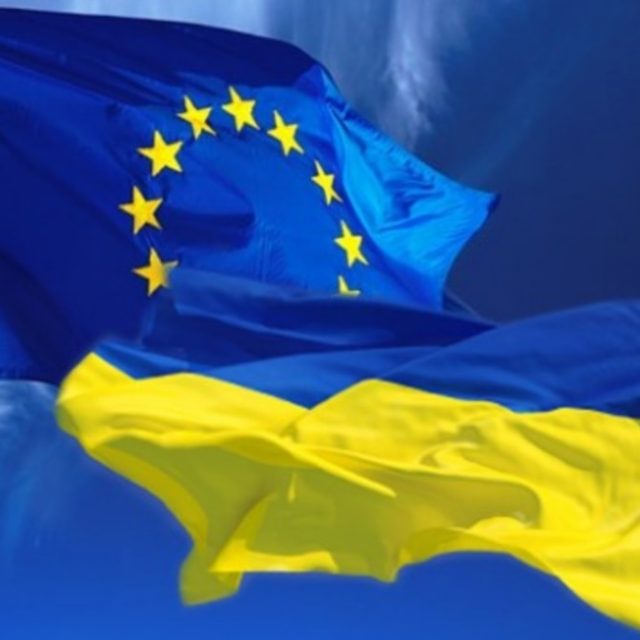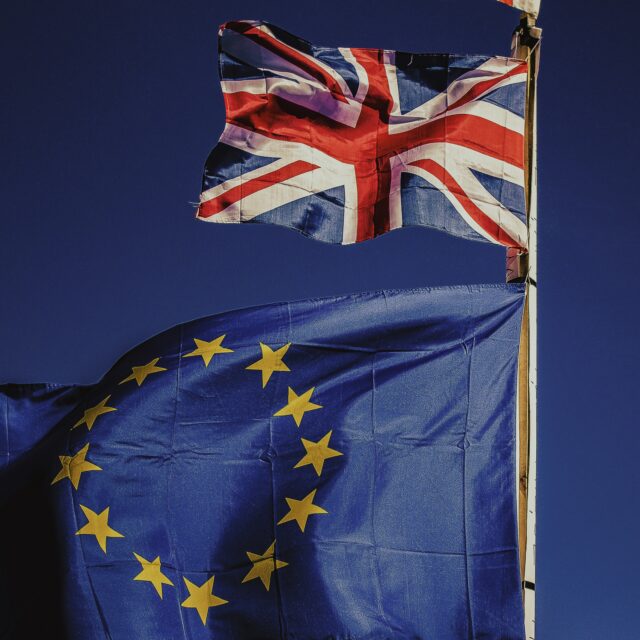Photo by Denys Nevozhai on Unsplash
At this moment of great instability, the European Union is looking for new leaders, writes Andrew Duff.
The decisions it faces are delicate and critical. With the national elections for the European Parliament taking place in 27 member states on 6-9 June, the question is: Can they deliver the leadership the EU needs?
On 11 June in Brussels, the European Parliament’s Conference of Presidents (CoP), comprised of party group leaders, will meet to assess the election results. After jostling for recruits and defectors, the final formation of the House will not be settled until the new Parliament opens its first plenary session on 16 July. Next week, we will know the winners and losers. But the main story will be the advance of the right.
The largest group will continue to be the conservative European People’s Party (EPP), led doggedly by veteran Manfred Weber. He is likely to nominate Roberta Metsola (EPP), the current President of the Parliament, for a second term. He will also call for a second term for Ursula von der Leyen (EPP) as President of the Commission.
Some MEPs want to bind von der Leyen’s candidacy to a newly negotiated policy programme after the manner of coalition government pacts in Germany. That would be a big mistake. For one thing, the actual right to nominate the Commission president lies with the European Council, not the Parliament. Moreover, the concept of an EU government is, at best, nebulous, with executive power being shared uneasily between the Commission and the European Council. Negotiating a spurious policy agreement among quarrelling groups would take time (until September) that the EU can hardly afford.
In any case, experience suggests that Parliament’s efforts at agenda setting tend to be short-lived. At a time when the Union’s workload is set mainly by external events, not least Ukraine, a degree of pragmatism would do the Parliament well. Whereas majorities in the Parliament shift according to the legislative or budgetary matter at hand, the House remains badly divided on constitutional questions between federalists and nationalists.
The view from the top
The European Council, for its part, will have an informal meeting on 17 June with its outgoing President, Charles Michel, having spoken to Metsola to agree to the choreography laid down by Article 17(7) of the Treaty on European Union. This ordains that “[T]aking into account the elections to the European Parliament and after having held the appropriate consultations, the European Council, acting by a qualified majority, shall propose to the European Parliament a candidate for President of the Commission”. Such sensitive power dynamics deserve a practical manifestation. Michel should turn up at the Parliament, preferably on foot, with TV cameras in tow, to meet with the CoP on 20 June.
On 27-28 June, the European Council will meet to make the formal nomination. Commission President von der Leyen will likely be renominated if she still wants the job. Hungary’s illiberal leader Viktor Orban needs to be outvoted at this stage for reasons of ideology, just as he was in 2019. He may be supported this time by Slovakia. But everyone will make their own calculations as to von der Leyen’s chances of being re-elected by the Parliament. She needs an absolute majority of MEPs, 361 positive votes (abstentions won’t count). The ballot, due in Strasbourg on 20 July, is in secret. Group discipline will be weak. One recalls that she only scraped into office in 2019 by nine votes, supported at that stage by many British MEPs as well as those from Orban’s Fidesz party and Poland’s Law and Justice (PiS).
Left and Right
Von der Leyen’s dilemma is obvious. Although she has been a competent and diligent President under challenging circumstances, she now has a track record to defend. Many socialist MEPs are wondering why they should again be expected to vote for a German Christian Democrat on the instruction of Chancellor Scholz. President Macron’s Renew group seems split down the middle. And the Greens doubt von der Leyen’s commitment to climate change policies. Even if the official line of the four centrist groups is to support von der Leyen, the number of malcontents will be high. She will not make it a second time if the attrition rate is more than 20%.
As the campaign unfolds, it becomes apparent that the more von der Leyen poses as the Spitzenkandidat of the EPP, the less likely her chance of re-election is. Embracing some unsavoury characters, like Boyko Borissov, does not enhance her reputation. If she veers off to the right — specifically to court the right-wing populist votes of Giorgia Meloni’s Fratelli d’Italia (ECR) — she will lose votes in the centre. Even some EPP MEPs (the French Républicains) have already said they will not vote for her.
Meanwhile, the fissiparous forces of the populist and nationalist right, who will do well at the election, are preparing hostilities against the liberal centre. A realignment of parties within the European Conservatives and Reformists (ECR) group and the Identity and Democracy (ID) group is underway. Expect volatility. Orban’s Fidesz and Marine Le Pen’s Rassemblement National, variably antisemitic and Islamophobic, have powerful wild cards to play.
The new Parliament will be much more polarised than previously. The traditional ‘pro-European’ consensus built around the Franco-German axis is less assured. Threats to European security posed by the war in Ukraine and by rising irregular immigration have discombobulated EU politics. The Union has fallen into a constitutional stalemate, with routes to internal reform as well as enlargement seemingly blocked. It should neither be a surprise nor a humiliation if von der Leyen fails to make it to a second term.
Plan B
What then? If Parliament rejects von der Leyen, there will be a political hiatus but not a constitutional crisis. Indeed, Parliament’s veto of the candidate of the member states could be a major milestone towards a federal Europe. The Lisbon treaty provides for this eventuality. The heads of government will have one month to come up with a new centrist nominee. Personal calibre and political credibility at top level are key criteria, not party or nationality (although we may assume a non-German).
There is already much speculation about Mario Draghi, the highly respected former President of the European Central Bank and Italian prime minister. Non-affiliated by the party, Draghi is already preparing a major report on the future of the EU economy. Although his inclinations may lead him to succeed Michel as chair of the European Council, he may well come if called to the Commission. Meloni would be bound to support him, so a Draghi nomination would easily clear the parliamentary hurdle at the plenary session of 16-19 September. Canvassing for Draghi, however, is a delicate business. If his candidature were to be formalised before 20 July, von der Leyen’s chances would be decimated.
In any case, whoever makes it to the Commission presidency, there will then be a scramble among the party groups for other top jobs. Regional and gender balance are important further factors. The creation of a Commissioner responsible for a defence portfolio is this time a likely additional prize. The EU also needs a Treasury Secretary and an Attorney General. Over the autumn, Parliament will grill the Commissioner candidates, probably dismissing some and adjusting portfolios, before endorsing the whole new college in a roll call vote.
Once the new leadership is in place, it should reflect deeply about why the European elections were such an underwhelming experience for voters, candidates and media. The turnout will again be dismal. The European dimension of the campaign has been derisory. A decent reflection might at last force the member states to accept an electoral reform of the Parliament to introduce a pan-EU constituency for which a portion of MEPs could be elected from transnational lists. Federal political parties, championed by proper Spitzenkandidaten, are badly needed to Europeanise the next elections in 2029 and bolster the democratic legitimacy of the Union. That way, the EU’s new leaders will come.
One place where, for the first time in 45 years, no European elections took place was the United Kingdom. With Brexit, the British surrendered their rights as EU citizens, the most important of which is the right to vote and stand for the European Parliament. The UK seems oblivious to its loss of representation in the European Parliament. But the irony is that the UK will swing decisively to the left at its own general election on 4 July just as the rest of Europe heads right. Pause for thought.

The Author, Andrew Duff, is an Academic Fellow of the European Policy Centre. He is a former Member of the European Parliament (1999-2014), a Vice-President of the Liberal Democrats, Director of the Federal Trust, and President of the Union of European Federalists (UEF).




